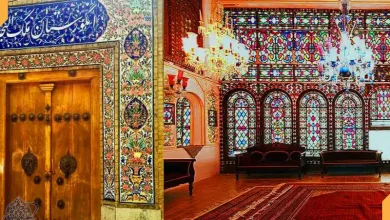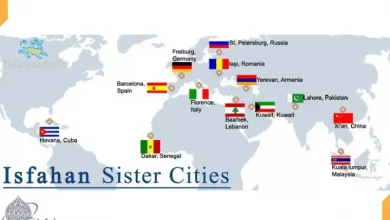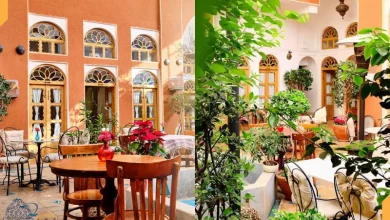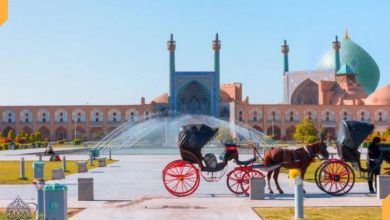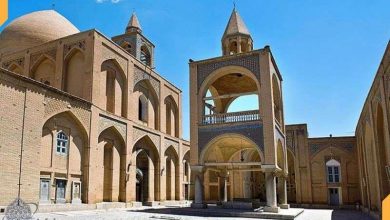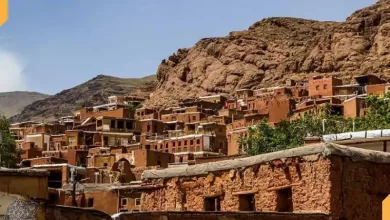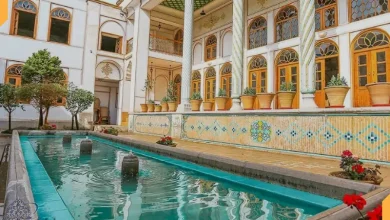Isfahan Jewish, Where do Isfahan Jew live?
If you want to find Isfahan Jewish, you don’t need to search much. Isfahan Jewish are living in a specified neighborhood of Isfahan.
Of course, the antiquity of Jewish presence in Iran reaches to more than 2500 years ago. Many of Jewish left Iran after Islamic revolution.
According to statistics, near 1500 Jewish live in Isfahan. Today, we are going to read more about Isfahan Jewish.
Where do Isfahan Jewish live?
Historical neighborhood of Joubare with its unique characteristics is considered as one of the most important cultural and tourism cores of Isfahan city.
Joubare is the main primary core of Isfahan city that its origin returns to Achaemenian reign. Joubare neighborhood is the main neighborhood of Isfahan Jewish.
In the previous periods, it was a ghetto neighborhood, but today, most of the Jewish were migrated to this neighborhood.
Joubare neighborhood is located in the northeast of Isfahan that is being limited form north to Ghods square, from south to Abd-ol Razzagh, from west to Hatef Street and Atigh square and from east to Soroush Street.
Joubare axis starts from Atigh square (Kohne Square) and Ghaz bazaar and by passing from Joubare neighborhood, it is being reached to synagogue complex, Kamal Aldin tomb, two minarets of Dar-al Ziyafe and finally to the Kamal street.
Short history of Jewish migration to Isfahan
When grand Kourosh took over Babel and saved Jewish with Arabic origin of today’s Iraq from the enslavement of king of Babel, a number of Jewish returned to Palestine and others came to Isfahan and settled in this region that was nominated “Dar-al Yahoud” or “Yahoudiye”. This narration was also repeated by other famous historians.
Synagogue; the meeting house of Isfahan Jewish
After settlement in Isfahan, the Jewish had the possibility to build temples for themselves that is famous to “Synagogue”. These synagogues were inhabited in different periods and today, the archaeological cases of that is remained from Qajar period.
The architecture of these synagogues is totally the same as Armenian’s churches; except that synagogues don’t have any internal decorations and the reason is that the Jewish don’t draw the human’s picture on the wall.
From the point of typology, the buildings of synagogues are west- east and in terms of decorations, has illustration appliance and lack benches the that the religious ceremonies were hold on it.
The architectural style of Isfahan Jewish synagogues are simple, modest and compatible with environment and stable.
According to the Dr. Honarfar writing, there were 20 synagogues in Isfahan in 1350 that 16 of them were located in the Joubare neighborhood that most of the Jewish were resided there from past and the remained were placed in two units in Dardasht neighborhood, one in the Golbahar neighborhood and the other in the Shah Abbas roundabout (today’s Palestine). One of the Jewish researchers had pointed that there are 12 synagogues in Isfahan until 1377.
The main synagogue of Isfahan is located in the heart of Isfahan city and in a corner of Palestine square. The Jewish have their own temple in the third big city of Iran and in a day, they can often worship there and sometimes, the number of worshipers reaches to more than 100 person there.
Where do Isfahan Jewish work?
Many of the Isfahan Jewish are business people. In the city center of Isfahan, there is a big shopping center that the local people call it “the walkway of Jewish”. This place is the main center of aggregation and business of Isfahan Jewish.
More about the education, cultural and social changes of Isfahan Jewish
Some of the Isfahan Jewish that were migrated to Israel before and after revolution, believe that there is a negative perspective toward the Islamic revolution and Isfahan Jewish;
In other terms, the existence of some discriminations has caused that a number of Jewish families that were gone to Israel from Iran, after living there for a few years, decided to migrate to America or Canada.
In the last two decades, the total position of Jewish society of Iran, like the community of majority of Muslims had been faced with some changes.
It seems that the governmental sensitivity toward Jewish is decreased and on the other hand, the public culture level has been increased and perhaps this issue was a background for the improving of individual interactions of Muslims and Jewish in Iran’s society.
Nowadays, Isfahan Jewish has a more stable position than the first two decade of revolution; whether in terms of governmental supervisions or social.
This condition was the result of endeavor of all the people in Iran’s Jewish community for gaining public trust and building social relationship with Muslim’s society and the body of government; so that today, many of the normal people in Iran tend to work and business with Jewish, because that have more truth to the Jewish community.
One of the signs of Jewish satisfaction from their situation is the decreasing of their migration from their country to the other countries.
Nowadays, some of the Jewish youth could obtain the high grades like university professor, lawyer, and doctor with continuing education in Iran.
In terms of cultural changes, paying attention to the total situation of Jewish is important and they want from Iranian intellectuals to try for improving the cultural status.
FAQ
Where do Isfahan Jewish live?
Joubare Neighborhood.
Where do Isfahan Jewish worship?
In synagogues.
What is one of the signs of Jewish satisfaction from their situation?
Decreasing of their migration from their country to the other countries.
According to the Dr. Honarfar writing, how many synagogues were in Isfahan in 1350?
20 synagogues.
Conclusion
The presence of Jewish in Iran and especially in Isfahan, returns to more than 3000 years ago and forced migrations of Jewish from Israel to Ashour, Babel and western and central parts of Iran was also done during consecutive periods. Isfahan is an important province in terms of Jewish habitation.
Jewish had cultural and religious relationship with other Iranian along the history; as they were getting fast in Ramadan with Muslims and also attended in ceremonies.
Jewish had active presence in the cultural life of Iranian and they had Iranian identity for themselves.
Have you ever interacted with Isfahan Jewish? What kind of people they are? Do you feel relax to contact with them?
Have you ever bought something form Isfahan Jewish? Share your comments with us…

